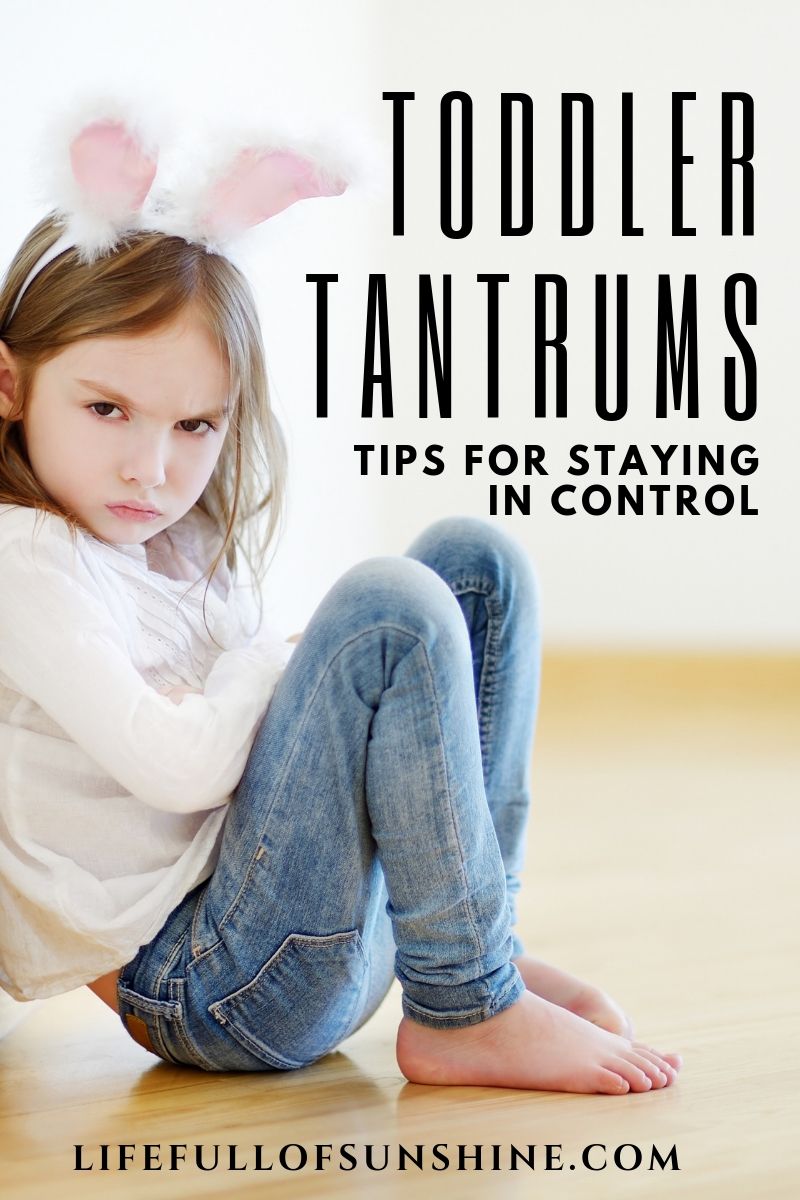SURVIVING TANTRUMS
Ahh the tantrum. It’s interesting, isn’t it. It can be triggered by getting the blue plate one day but then by not getting the blue plate the next day. It can be triggered when you zip their jacket on the day they want independence but by you not helping them with the jacket on the day they decide they need you to do it. And the best part is, there are never any clues about what kind of day it is today.
First of all, I just want to reassure you that having uncontrolled emotions is a very VERY normal part of developing little brains. Life is overwhelming sometimes. And their life at that moment is centered on the perfect plate color. Eventually, their brains will develop enough to realize that these colors don’t matter too much and that there are better ways to deal with things they don’t like.
I want to share some ideas on how to navigate through a tantrum as it happens.

1. stay above the emotion
Don’t let them suck you in. You will feel the urge to point out how illogical this is. It will be hard to remain patient. But this emotion is not yours. Your child is experiencing something really hard (don’t judge what’s hard and what’s not) and needs you to remain calm and in control.
2. be their logical mind
Talk them through the experience. Say things like, “Oh, you want the pink plate cuz that’s your favorite colour? Pink IS very nice. This is a hard situation. The problem is that the pink plate has a yucky on it and it’s working hard on getting cleaned right not. It’ll probably be ready by your next meal. Which plate do you want to try right now, the purple or the green?” or say something like, “I see you’re starting to get really upset about this. Try to stay calm and use your words to let me know how we can work this out.”

3. don’t feel bad if they decide that they will have the tantrum anyway
Again, you are not the cause of the tantrum nor should you be getting sucked into having one. Children sometimes react this way. As long as the child is safe, it’s fine to let them feel their own emotions. It’s ok if they cry. You can give them space and very calmly say, “I’m very sorry you’re upset about this. Let me know when you’re calm enough to talk about what we can do instead.” You can even suggest for them to sit on your lap as they cry. Say, “it’s ok to be sad. I’m here sweetheart. You’re safe. We’ll think of something.” It may sound dramatic, but it’s real and comforting to them.
4. don’t give in to doing something you said you wouldn’t do
Regardless of how upset the child gets, it is more important for you to stick to your word than it is for the child to stop crying. The most beneficial thing a young child can feel is that you have things under control and what you say actually happens. If you say that the pink plate is unavailable and then react to the tantrum by stopping the dishwasher and making it available, the next time they want a dirty plate they will feel very upset again – not because that’s what they’re trained to do but because they really ARE upset they don’t get the plate they want. They see the dishwasher being stopped as a valid solution to the problem. But if you stick to your word and the pink plate doesn’t come out, the next time this happens, the tantrum will be shorter because they will know that getting a purple plate was fine last time and mama doesn’t bring dirty dishes out of the dishwasher.

Mamas, keep in mind that tantrums will always happen and we all have days when our patience is running low. Give yourself grace and give your children grace. And keep in mind, this tantrum too shall pass.
If you like this post or find it helpful, please share it. Also, I’d love to read your comments below on what works best for you in dealing with your children’s tantrums.




